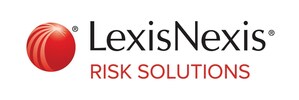WASHINGTON, Sept. 13, 2017 /PRNewswire/ -- Today, the Data Foundation and LexisNexis® Risk Solutions released a new report, Who is Who and What is What? The Need for Universal Entity Identification in the United States. The report outlines the need for the U.S. government to adopt a universal method of entity identification in order to verify companies, nonprofits, and other organizations using a single, common unique identifier. More than 15 government, private sector, and tech experts were interviewed for this report.
The solution to this need already exists: the global Legal Entity Identifier (LEI), which is already used by over 90 government agencies around the world. The LEI is a standard, non-proprietary, verified identification code that is managed by a global, federated system. It already enjoys support from major players in the financial industry.
Implementation of the LEI across all U.S. government reporting would have a range of benefits for industry, governments, watchdogs, and, ultimately, taxpayers. The LEI would create a single electronic view of all legal entities, knit together from their existing government reports - bringing transparency for investors, efficiency for regulatory agencies, and lower costs for the entities themselves.
Report highlights:
- The U.S. government needs to move away from proprietary identification codes because users of the information cannot access or exchange it without purchasing a license.
- The LEI is an attractive alternative to proprietary identifiers because it allows entities to inexpensively register once, then use the same identifier with many different regulators.
- A single, interoperable entity identifier would allow watchdogs to conduct more robust oversight across a variety of sectors and applications.
- To date, nearly 500,000 entities in the U.S. and around the world have registered for an LEI. The number of registered users of the LEI is expected to climb next year.
- The Commodities and Futures Trading Commission became the first U.S. regulator to mandate use of the LEI. Other regulators in the U.S. have embraced the LEI for a variety of uses.
- The migration away from a proprietary entity identifier is a technical hurdle, but there is nothing unique or challenging about LEI implementation.
"Inconsistent and various proprietary entity identifiers continue to lock up mountains of government data," said Scott Straub co-author of the report and director of federal market strategy for LexisNexis Risk Solutions. "If the LEI was universally adopted in the U.S., it would give the government greater flexibility to be adaptable to a range of uses, some of which haven't even been fully conceived. Ultimately, government agencies, taxpayers, business, and watchdogs would have greater access to data and at reduced costs."
"For decades the U.S. federal government and its contractors have been bound to an expensive, impractical proprietary entity identifier, the DUNS Number," said Hudson Hollister, interim president of the Data Foundation. "Adoption of the LEI in its place would mean a full range of benefits for industry, governments, watchdogs, and ultimately taxpayers. The LEI is the entity identifier that would liberate our government from the current proprietary regime."
Read the full report here.
Full list of interviewees:
- Srinivas Bangarbale, Commodity Futures Trading Commission
- Andrea Brandon, Department of Health and Human Services
- Robin Doyle, J.P. Morgan
- Karl Eiholzer, Municipal Securities Rulemaking Board
- Danny Goroff, Sloan Foundation
- Ed Kelly, State of Texas
- Ben Lis, LEI Smart
- Michael Peckham, Department of Health and Human Services
- Linda Powell and Ren Essene, Consumer Financial Protection Bureau
- Matthew Reed, Office of Financial Research, Department of the Treasury
- Clare Rowley, Global LEI Foundation
- Robert Surber, State of Michigan
- Jim Swift, Cortera
- Chris Taggart, OpenCorporates
- Mike Willis, Securities and Exchange Commission
- Stephan Wolfe, Global LEI Foundation
Report methodology:
More than 15 entity identifier stakeholders were interviewed, including officials from federal and state agencies, as well as nonprofit leaders, and outside observers.
About the Data Foundation:
The Data Foundation is the nation's first industry-focused open data research organization. We seek to define an open future for our data, for a better government and a better society, through research, education, and programming. For more information, visit datafoundation.org.
About LexisNexis Risk Solutions
At LexisNexis Risk Solutions, we believe in the power of data and advanced analytics for better risk management. With over 40 years of expertise, we are the trusted data analytics provider for organizations seeking actionable insights to manage risks and improve results while upholding the highest standards for security and privacy. Headquartered in metro Atlanta, LexisNexis Risk Solutions serves customers in more than 100 countries and is part of RELX Group plc, a world-leading provider of information and analytics for professional and business customers across industries. For more information, please visit http://www.lexisnexis.com/risk/.
SOURCE LexisNexis Risk Solutions
Related Links
WANT YOUR COMPANY'S NEWS FEATURED ON PRNEWSWIRE.COM?
Newsrooms &
Influencers
Digital Media
Outlets
Journalists
Opted In





Share this article